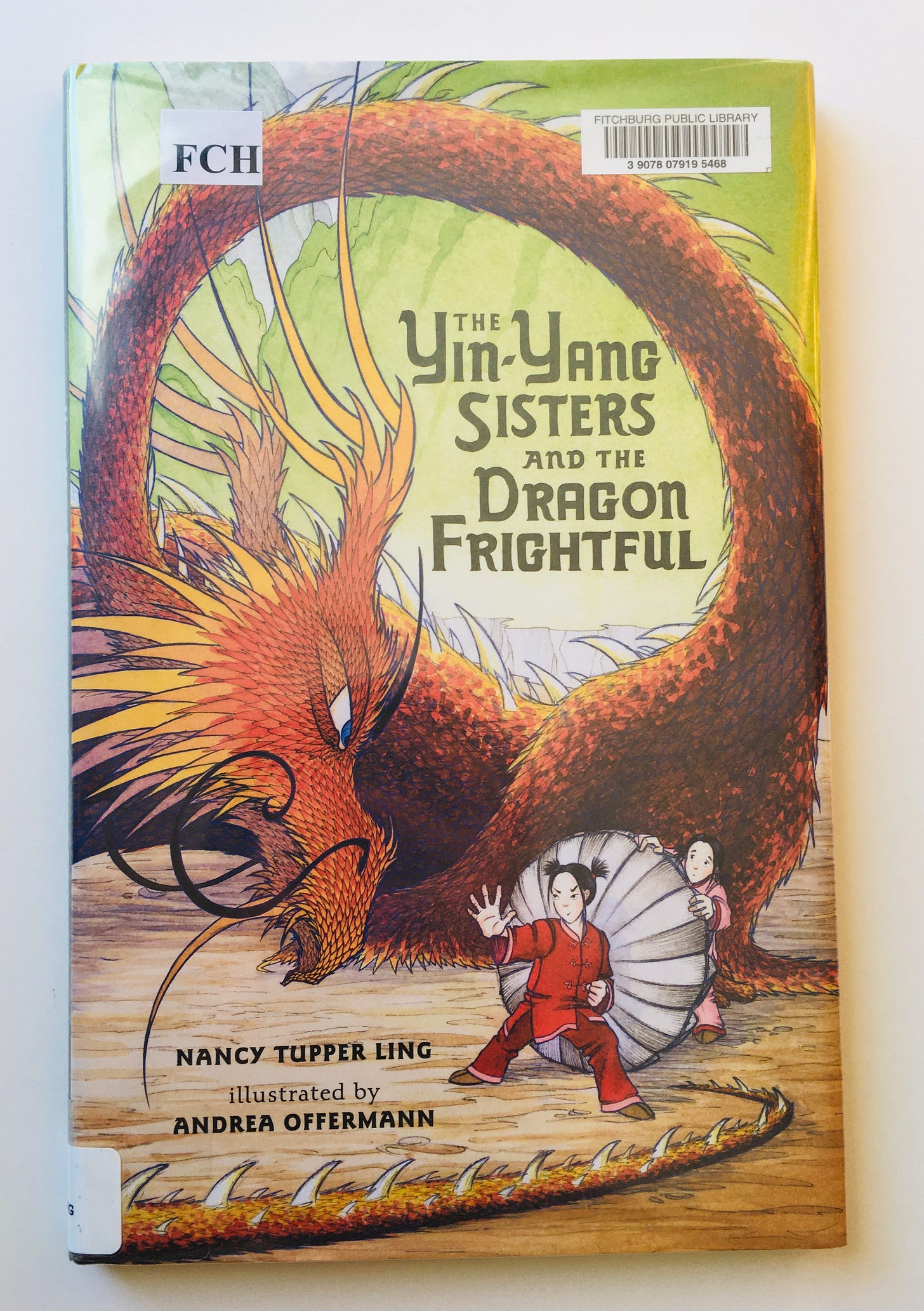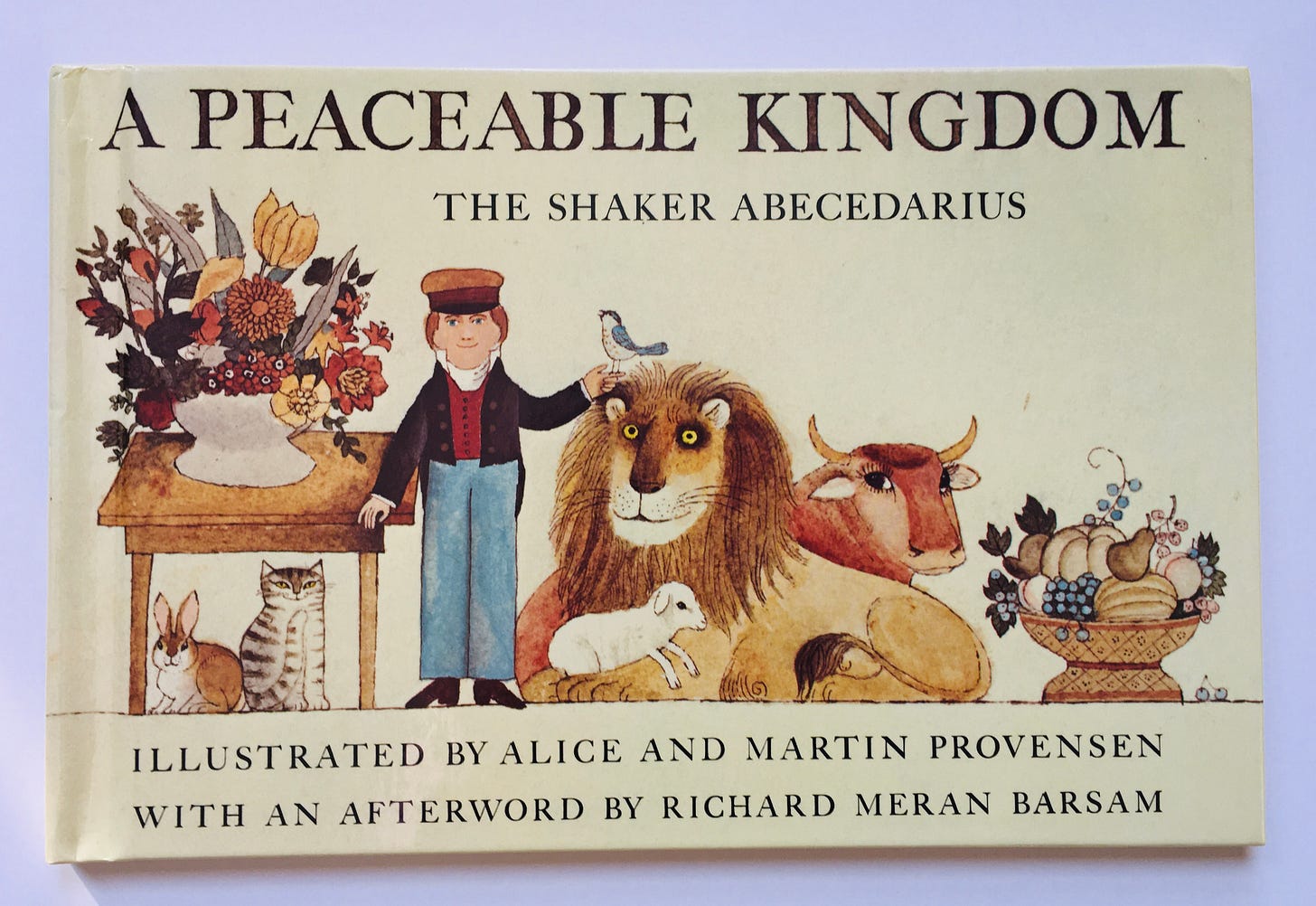Hi there 👋🏻 This is my second visit to your inbox this week and it feels kind of strange. What did you think of Ten Titles on Tuesday yesterday? Thumbs up/thumbs down/thumbs hovering somewhere in the middle? (I am really asking!)
Before we get to it today I want to let you know I’ve added a handful of new categorical lists to my Bookshop.org storefront. These are topics that I think are important for one reason or another but to which I likely won’t devote a whole Spotlight On issue — some are big (sometimes scary) things in the lives of little folks where books can absolutely help you introduce the idea and support the accompanying feelings and behavior, others are less about changes and transitions and more about understanding the world in which we live (and making that place a more tolerant and just place for us all to exist together).
Books for potty training — All gender neutral titles, as I always found the ones “for boys” and “for girls” to be insipid at best. (I also have strong feelings about the direction, “Pull down your pants.” It’s PUSH down your pants! Life is confusing enough!) Check out my all-time go-to, Diapers Are Not Forever by Elizabeth Verdick.
Books about going to the doctor and dentist — One of my children still has some fear about the doctor and any medical procedure so I did not limit my selections to “the first time.”
Books about families — This was inspired by my absolute favorite title in this category, Families by Shelley Rotner, and its excellent follow-up, Lots of Grandparents. I put general titles first, followed by titles specific to divorced families, same-sex-parent families, and adoptive families. I believe to my core that love is love, and you’ll see that reflected these choices.
I’m more than happy to create other lists of this nature — topics/transitions that children experience that are worth reading and talking about — so if you have ideas or needs, please do hit reply and let me know.
Onwards!
The Yin-Yang Sisters and the Dragon Frightful by Nancy Tupper Ling, illustrated by Andrea Offermann (2018)
I can’t remember where I heard about this book but it showed up one day in my pile of holds when I went to pick them up at the library, and I’m so glad it did. The story of two sisters — Mei and Wei, as different as ying and yang — who are destined from birth to fight off the dragon terrorizing and inconveniencing their town (he lays across the bridge the citizens use to get anywhere), Tupper Ling has crafted an action-packed tale full of courage, smarts, and familial love. The message that two very different people can contribute, each in their own way, very valuable skills and talents is not a new one — nor is the strong, devoted bond of sisterhood — but matched with Offerman’s vibrant, physically exciting illustrations full of period details, this title feels extra fresh and fun. It’s not often I come across a book that I think has a chance of pleasing everyone, but this might be it.
A Mother for Choco by Keiko Kasza (1992)
My list of board books that have years-long staying power is short (Jamberry by Bruce Degen; Each Peach Pear Plum by Allan and Janet Ahlberg), but this is on it. We have read this book from the time my babies were toddlers until, literally, last night (they are now 4 and 6 years old). A Mother for Choco is also found often on another list: the best books about adoption, and rightfully so. I’ve never come across an adoption title as touching, sweet, and repeatable (a million times) as this one. “Choco was a little bird who lived all alone. He wished a had a mother, but who could his mother be? One day he set off to find her.” The reader journeys along with Choco as he queries animal after animal, none of whom look like him, all of whom use this as a reason why they can’t possibly be his mother. Understandably despondent and down, one day Choco sees Mrs. Bear and knows she can’t be his mother because she doesn’t look like him — but when she comforts him when he cries, gives him squeezes and kisses, and dances with him, it’s apparent she is just the mother Choco is looking for. She offers this to him (and his acceptance is our favorite part of the book), finally bringing him home to her other adopted animal-children, in a place where it’s obvious he will be safe and well cared for. This is a singular and powerful title — Kaska’s best, bar none — and its staying power isn’t surprising when you consider its comforting messages about acceptance, chosen family, and love. What an incredible thing to tell children (and ourselves): love is there no matter how alone you feel. Love is there no matter what you look like. Love is there inside any kind of family you create. Love is a thing for you.
A Peaceable Kingdom: The Shaker Abecedarius, illustrated by Alice and Martin Provensen (1978)
This book raises immediate questions: why is there no author?
Answer: The entire (limited) text is an excerpt from The Shaker Manifesto, a book written anonymously by and for followers of the Shaker religion in 1882.
What’s an abecedarius? Answer: An acrostic poem — where the first letter of every line spells a word going down the page vertically, but in the instance of an abecedarius, the first letter must follow the order of the letters of the alphabet. (As such, abecedarius poems are most often used to teach the alphabet).
What’s it like? Answer: It’s fascinating. It’s fun. It’s astoundingly well done. (I did not intend to rhyme there but I’m going to let it stand.) You can never go wrong with anything illustrated by the Provensens, for one thing (I mentioned this in a review of another of their books in issue No. 7) and here they do not disappoint (they never disappoint). But if it’s possible to top the visual pleasure, the prose does just that. This is the full text of the book:
Imagine, for a moment, reading that aloud (the thrumming, rhythmic pleasure of it — you’re doing it right now, aren’t you?) Imagine sharing the alphabet with pre-readers in this way (the intrigue of these letters paired with these animals). There are alphabet books, there are poetry books — this is somehow both, and what a book this is. It is remarkable. It is unique. It gets all the stars from me ⭐️ and I highly recommend it.
Emily Runaway Imagination by Beverly Cleary (1961)
I’ll admit that I read this book myself — not aloud, just myself — because my 6yo listened to it on audio and wanted to talk about it, and given I’ve been waiting for this moment for the 2,709 days since I found out I was pregnant with my eldest child (that is an accurate accounting; I know the exact date I peed on a stick with a positive result), how could I pass that up? I’m glad I didn’t, because though I’ve read other Cleary books — all the Ramona, of course, but also all the Henry Huggins, all the Ralph S. Mouse, plus many one-offs — this book was like none of her others, and a pleasant surprise. Emily is a young girl living in the early 20th century, and as her father points out several times, she has a lot of spunk. Though her ultimate goal is to bring a library to her small town (and much of the book is focused to this end) along the way she gets into all sorts of entertaining and hilarious situations — from accidentally getting her father’s pigs drunk on old apples on the day of her mother’s important fundraising party to bleaching her horse white to impress her cousin who’s obsessed with Black Beauty (it was easy for me to understand why my 6yo loved this book). While Emily isn’t Ramona, they’re definitely related (maybe Emily is Ramona’s grandmother in another dimension), and like every other book she wrote, in this one too, Cleary delivers a funny and enjoyable read.
(I decided I love this book all the more when a couple weeks ago, upon telling my 6yo how badly behaved my best friend and I were in our high school Spanish class, she asked, “Were you wool-gathering?” After I stopped laughing — and said yes, but also we were just flat-out naughty — I asked where she’d heard that phrase. The answer? Emily’s Runaway Imagination. This is what comes of raising a child who reads. 😊 )
Speaking of imagination, I love this from Astrid Lindgren, part of her 1978 acceptance speech when she received the Peace Prize of the German Book Trade (captured in a biography I just finished because I am completely obsessed at the moment, Astrid Lindgren: The Woman Behind Pippi Longstocking by Jens Anderson):
There is no medium that can replace the book as fertile soil for the imagination. Contemporary children watch films, listen to the radio, watch television, read comics — all this can be amusing, certainly, but it doesn’t have much to do with imagination. A child alone with a book creates his or her own images somewhere in the secret places of the soul, which surpass everything else. These kinds of images are necessary for humanity. The day children’s imaginations are no longer capable of creating them will be the day humanity grows poor.
💯
I am an affiliate of Bookshop.org and I will earn a commission if you make a purchase through my storefront.









I really enjoyed "Ten Titles on Tuesday". Short and sweet.
One thing that caught my attention today about the day's selections is the year of publication. One of the selections is from 1961, another from 2018!
Do children's books age significantly better when compared to YA / Adult fiction ? Curious to know which 'classics' haven't made the cut for you :) ?